Published: april 08, 2010; Intelligence and Terrorism Information Center.
The Political Struggle – Salam Fayyad: Declarations Regarding the Plan to Establish a Palestinian State.
Palestinian Prime Minister Salam Fayyad was interviewed by the Israeli morning newspaper Haaretz on April 2, and reiterated his intention to establish an independent Palestinian state:
1. The decision made by the International Quartet to support the establishment of an independent Palestinian state turned it into an international project. According to Salam Fayyad, if the plan fails, “the situation on the ground will force itself on the political process.”
2. Support for the so-called “popular resistance:” He said that “oppressed peoples will never raise their heads against the occupation. It is not reasonable to expect the Palestinians to swallow the injustice of the occupation. We are doing everything that Martin Luther King and Gandhi did.”
3. The settlements: He rejected the claim that the Palestinian Authority regarded the settlements as an excuse not to negotiate with Israel. He added that in retrospect it was stupid of the Palestinians to agree to a situation in which they were unable to stop the expansion of the settlements.
4. Incitement: He claimed that the Palestinian Authority was dealing with incitement and believed in promoting dialogue.
5. Jerusalem: The Palestinian Authority, he said, would not agree to postpone the issue of Jerusalem to a later stage in the final status arrangement talks. He added that the talks had to deal with arrangements and accessibility and not with principles.
6. The refugees: He said the plan for a Palestinian state took into consideration the construction of an infrastructure for absorbing the refugees so that they would have the right to live in the state of Palestine.
On April 3 he was interviewed by the popular Arabic paper Al-Sharq Al-Awsat, and reiterated his plan to establish the institutions and infrastructure of an independent Palestinian state:
The date of the establishment of the Palestinian state: According to Salam Fayyad, there was no specific date involved and the Palestinian Authority would continue to create the new reality. The establishment of state institutions would be implemented in the middle of 2011. It was not a question of proclaiming a state but of establishing institutions and an infrastructure. The timeframe of two years was chosen to prevent a delay and negate Israel’s excuse that the Palestinians were not ready to run a state.
The “resistance:” He again spoke against an armed “resistance” and said that it only caused the unnecessary deaths of young Palestinians. He said that those who supported an intifada were ignoring the situation on the ground, because the Palestinians had risen up against the settlements and the fence quietly and without casualties.
Hamas Responds
Hamas’ information office said in a statement that Salam Fayyad did not represent the Palestinians in any way and his intention was to destroy the Palestinian cause. Hamas complained that Salam Fayyad had wished Israel a happy Passover and in that way not only “recognized Israel as a Jewish state,” but waived the so-called “right of return” by agreeing that the refugees return [only] to the state he was planning to establish. Hamas also complained that Salam Fayyad was “an illegal figure who stole rule of the West Bank without any authority from the Palestinian Legislative Council” (Hamas’ Palestine-Info website, April 5, 2010).
Nabil Shaath: the “Popular Resistance” Will Not Become an Armed Confrontation

Nabil Shaath (left) with Hamas leader Ismail Haniyeh (right) - background: al-aqsa mosque, Jerusalem.
Nabil Shaath, a member of Fatah’s Central Committee, stated that the “popular resistance” would not turn into an armed confrontation despite Israel’s continuing attempts to make it one. He said that Palestinian leaders in the West Bank were overseeing the situation and keeping it from turning into an intifada. He said that Palestinian strategy was based on four factors: the “popular struggle,” international political, legal and economic activities against Israel, achieving Palestinian unity, and building the political institutions of the future Palestinian state (Wafa News Agency, April 4, 2010)



 RSS
RSS

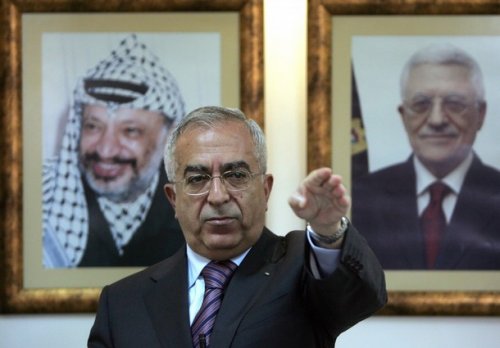
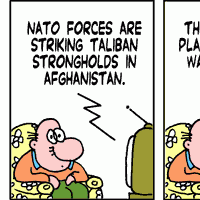

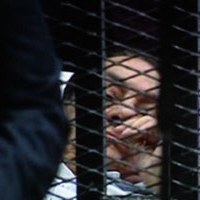
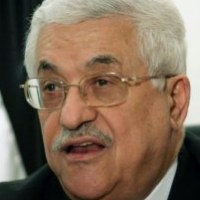
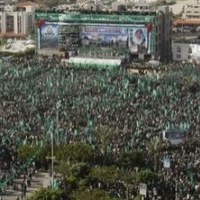




Salam Fayyad: "A Palestinian State in 2011" #Israel #JCOT http://j.mp/adfNFy
RT @CrethiPlethi: Salam Fayyad: "A Palestinian State in 2011" #Israel #JCOT http://j.mp/adfNFy
[…] This post was mentioned on Twitter by Elisabeth, Crethi Plethi. Crethi Plethi said: Salam Fayyad: "A Palestinian State in 2011" #Israel #JCOT http://j.mp/adfNFy […]
[…] of an independent Palestinian state and that this would be implemented in the middle of 2011. [CrethiPlethi, Apr 08, […]